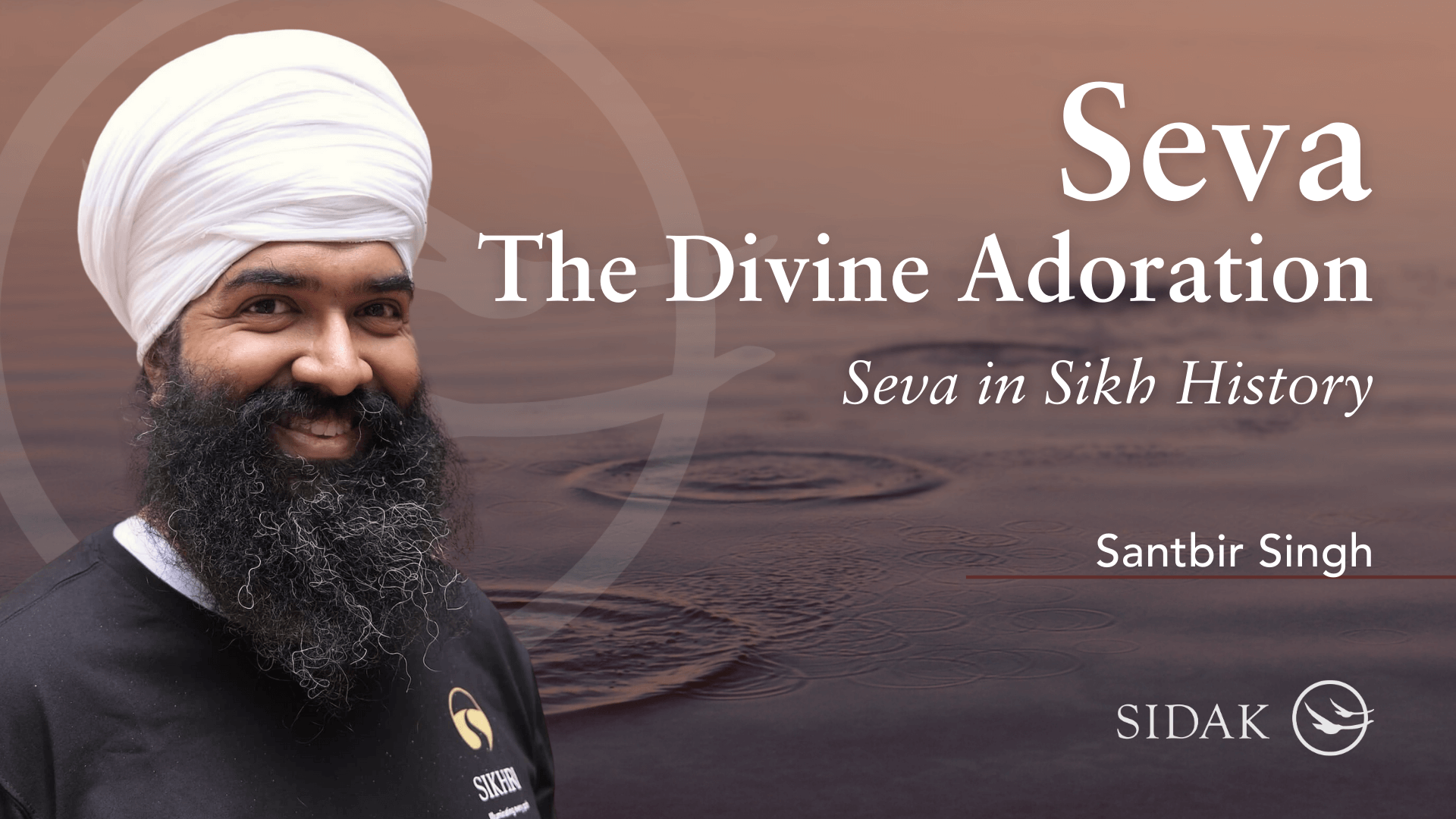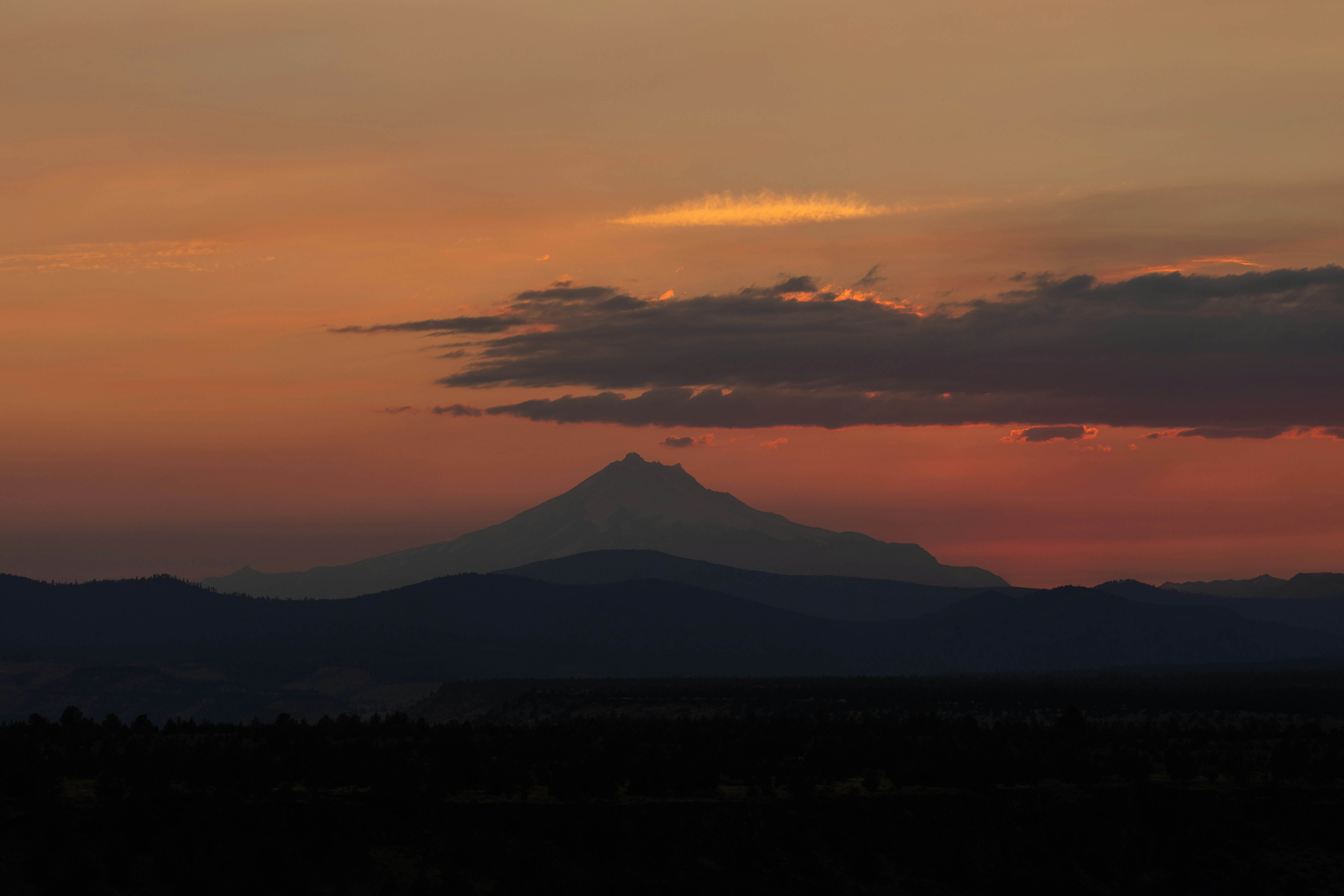
Dr. Pritpal Singh discusses the importance, history, and significance of Afghanistan for Sikhs, from the time of the Gurus to now.
Sikh History in Afghanistan. Subheading will go here. By. Monday. , 30. March. 2020. Sikh History in Afghanistan. Sikh History. History. Dr. Pritpal Singh discusses the importance, history, and significance of Afghanistan for Sikhs, from the time of the Gurus to now. In This Podcast.…
sikhri.org/podcasts/sikh-history-in-afghanistan

This session traces the evolution of Seva throughout Sikh history, from the time of the Gurus to the present day. It examines Seva in its many forms—spiritual, communal, and revolutionary—while connecting it to broader frameworks of the Sikh revolution...
Seva in Sikh History. Seva: The Divine Adoration. Wednesday. , 9. July. 2025. This session traces the evolution of Seva throughout Sikh history, from the time of the Gurus to the present day.…
sikhri.org/videos/seva-in-sikh-history

Harinder Singh explores Bhai Vir Singh's unique framing of Sikh history at Bhai Vir Singh Sahitya Sadan, Delhi.
Sikhi & History: Bhai Vir Singh's Perspectives. Subheading will go here. By. Friday. , 6. December. 2024. Sikhi & History: Bhai Vir Singh's Perspectives. Sikh History. Bhai Vir Singh. Harinder Singh explores Bhai Vir Singh's unique framing of Sikh history at Bhai Vir Singh Sahitya Sadan, Delhi.…
sikhri.org/podcasts/sikhi-history-bhai-vir-singhs-perspectives

Join Harinder Singh at Bhai Vir Singh Sahitya Sadan, Delhi, as he explores Bhai Vir Singh's unique framing of Sikh history on 25 September 2024.
Sikhi & History: Bhai Vir Singh's Perspectives. Tuesday. , 3. December. 2024. Harinder Singh explores Bhai Vir Singh's unique framing of Sikh history at Bhai Vir Singh Sahitya Sadan, Delhi. How did Bhai Vir Singh perceive and narrate Sikh history?…
sikhri.org/videos/sikhi-history-bhai-vir-singhs-perspectives

Presented by SikhRI
Lessons from History. Sunday. , 1. February. 2015. 3:45 pm. -. 5:00 pm. (PST). Dasmesh Darbar Sikh Temple. Get Directions. Date & Time. Sunday. , 1. February. 2015. 3:45 pm. -. 5:00 pm. (PST). Location. Dasmesh Darbar Sikh Temple. 860 Oakhill Avenue Southeast. Salem. , Oregon. 97302. United States.…
sikhri.org/events/lessons-from-history

Today in Sikh History series runs on SikhRI’s Twitter, Facebook, and Instagram, publishing three posts a week on average. The team behind the series relentlessly works through the archives every day to dig out gems that had the significant impact on how our culture came to be. Please consider sharing a part of your dasvandh to support the awareness around Sikh history. https://www.sikhri.org/monthlydonation fb: https://www.facebook.com/sikhresearchinstitute/ twitter: https://twitter.com/sikhRI instagram: https://instagram.com/sikh.research.institute
Support Today in Sikh History Series – SikhRI. Thursday. , 6. December. 2018. Today in Sikh History series runs on SikhRI’s Twitter, Facebook, and Instagram, publishing three posts a week on average.…
sikhri.org/videos/support-today-in-sikh-history-series-sikhri

Join us for a thought provoking evening of Kirtan and Vichar with Harinder Singh (USA) and Veer Manpreet Singh (UK).
Sikh History: The Ghallugharas Sacrifices. 1746 | 1762 | 1984. Hosted By. Sikh Youth Australia. Join us for a thought provoking evening of Kirtan and Vichar with Harinder Singh (USA) and Veer Manpreet Singh (UK). Get Directions. Date & Time. Thursday. , 9. January. 2025. 6:00 pm. -. 10:00 pm.…
sikhri.org/events/sikh-history-the-ghallugharas-sacrifices

Every year around November, history is visited by some who commemorate the devastating anti-Sikh violence in Delhi and other northern cities of India in 1984, strongly insisting to never forget 1984, while others insist on forgetting...
Reflections on 1984 Legacies of Silence, History & Otherness. Wednesday. , 16. November. 2016.…
sikhri.org/videos/reflections-on-1984-legacies-of-silence-history-otherness
.png)
Join Sidak - SikhRI's signature leadership development program designed for individuals seeking to deepen their understanding of Sikh culture, history & theology. Click here to learn more and enroll now!
Sikhi 101: Introduction to Sikh History & Theology. Formulate an understanding of the unique characteristics and fundamental differences of Sikh theology from other faith systems. Interpret Asa ki Var in ways that reflect the originality of Sikh theology.…
sikhri.org/sidak

Bhai Vir Singh Sahitya Sadan, a premier literary and cultural organization in the capital, was established in 1958, in the memory of the father of modern Punjabi literature and Saint-Poet of India Bhai Vir Singh.
Sikhi & History: Bhai Vir Singh's Perspectives. Bhai Vir Singh Sahitya Sadan, a premier literary and cultural organization in the capital, was established in 1958, in the memory of the father of modern Punjabi literature and Saint-Poet of India Bhai Vir Singh. Presenters. Get Directions.…
sikhri.org/events/sikhi-history-bhai-vir-singhs-perspectives

This is the story of Hari Singh Nalua, a formidable general in the army of the Khalsa during the reign of Maharaja Ranjit Singh. From birth to death, what lessons can we learn from this figure from Sikh history?
A Brave Life of the Exemplary Sikh Warrior: Sikh History. Friday. , 23. October. 2020. This is the story of Hari Singh Nalua, a formidable general in the army of the Khalsa during the reign of Maharaja Ranjit Singh. From birth to death, what lessons can we learn from this figure from Sikh history?…
sikhri.org/videos/a-brave-life-of-the-exemplary-sikh-warrior-sikh-history

Every year around November, history is visited by some who commemorate the devastating anti-Sikh violence in Delhi and other northern cities of India in 1984, strongly insisting to never forget 1984, while others insist on forgetting and moving on from that dark chapter in post-independence Indian history. What are the ramifications of this tug-of war between memorialization and demanded forgetfulness of such historical blot? This discussion hopes to bring out the ethical imperatives that Sikhs as well non-Sikhs can and must adopt through a conscientious, empowered remembering. To simply erase violent history is also an act of violence that leads to erasure. We must re-investigate the mainstream history and its role in un-acknowledging the discourse of 1984; we must force ethical challenges to the willful abnegation and/or totalitarian evasion of our social history.
Reflections on 1984: Legacies of Silence, History & Otherness. Saturday. , 5. November. 2016. 3:00 pm. -. 4:30 pm. (EDT).…
sikhri.org/events/reflections-on-1984-legacies-of-silence-history-otherness
Over four days, from 18-21 October, Sikh Research Institute (SikhRI), in partnership with local Sikh organizations in the UK, presented a variety of seminars around London and Leicester, attracting more than 400 attendees over the course of the tour.
Forging Modern Connections to Sikh Political History - 25th October 2012. October 25, 2012. London, UK.…
sikhri.org/news/forging-modern-connections-to-sikh-political-history-25th-october-2012

Nadhra Shahbaz Khan is Associate Professor of art history at the Lahore University of Management Sciences, Lahore, Pakistan. A specialist in the history of art and architecture of the Punjab from the sixteenth to the early twentieth century, her research covers the visual and material culture of this region during the Mughal, Sikh, and colonial periods.
Nadhra Shahbaz Khan is Associate Professor of art history at the Lahore University of Management Sciences, Lahore, Pakistan.…
sikhri.org/people/nadhra-khan
In the rich mosaic of Sikh history, one name stands out luminously: Maharani Jind Kaur (1817-1863), affectionately known as Rani Jindan.
In the rich mosaic of Sikh history, one name stands out luminously: Maharani Jind Kaur (1817-1863), affectionately known as Rani Jindan. While history often casts her as Maharaja Ranjit Singh's wife and Maharaja Duleep Singh's mother, her essence transcends these roles.…
sikhri.org/inspiration/remembering-rani-jind-a-story-of-resilience

Professor Puran Singh (1881–1931) writes, “The Guru views the whole history of the human race as the history of new incarnations of Feeling, the One Primeval, the One Ancient that creates life.”
Professor Puran Singh (1881–1931) writes, “The Guru views the whole history of the human race as the history of new incarnations of Feeling, the One Primeval, the One Ancient that creates life.”. We pause. We reflect. Our minds drift when we see a hawk sitting stoically on a tree branch.…
sikhri.org/inspiration/cherish-honor-strengthen-chisel

A gurbani-based workshop that explores history and background of Asa Ki Var.
A gurbani-based workshop that explores history and background of Asa Ki Var. Sessions will delve into how to go beyond duality in thought conduct, and action at both personal and community level. Presenters. Get Directions. Date & Time. Saturday. , 16. May. 2015. 1:00 pm. -. 7:00 pm. (EDT).…
sikhri.org/events/asa-ki-var-creating-oneness-by-transcending-duality

A Letter of Twelve Months to Guru Nanak Sahib weaving history, longing and yearning.
A Letter of Twelve Months to Guru Nanak Sahib weaving history, longing and yearning. sai, my Beloved! Fill me into your red dye. You ferried me over the Pacific once. Today, I return, to find the ports of Komagata’s revolts.…
sikhri.org/articles/red-dye-barahmah-di-chitthi-guru-nanak-nu-a-letter-of-twelve-months-to-guru-nanak

Suchitra Vijayan is an essayist, lawyer, and photographer working across oral history, state violence, and visual storytelling.
Suchitra Vijayan is an essayist, lawyer, and photographer working across oral history, state violence, and visual storytelling. She is the author of the critically acclaimed book. Midnight's Borders: A People's History of Modern India. (Melville House, New York) and. How Long Can the Moon Be Caged?…
sikhri.org/people/suchitra-vijayan

Vaisakhi marks the Khalsa’s creation & Sikh renewal, rooted in Guru Nanak Sahib’s vision. Explore its history, meaning & modern relevance.
Vaisakhi: A Celebration of Harvest, Revolution, & Renewal. Vaisakhi. , Surender Pal Singh. Vaisakhi is both a harvest festival and a spiritual transformation, marking Guru Gobind Singh Sahib’s creation of the Khalsa in 1699. Rooted in Guru Nanak Sahib’s vision, Vaisakhi symbolizes justice, equality,…
sikhri.org/articles/vaisakhi-a-celebration-of-harvest-revolution-renewal

Embarking on a journey through the annals of history, we are confronted with stories of unparalleled sacrifice and unwavering courage.
Embarking on a journey through the annals of history, we are confronted with stories of unparalleled sacrifice and unwavering courage. Reflecting on the Chotta Ghallughara of 17 May 1746, we are drawn to the profound lessons of resilience and fortitude that echo through the ages.…
sikhri.org/inspiration/sikh-resilience-remembering-1746

This article explores intimate connections that can be drawn from the history and legacy of Banda Singh Bahadar. Learning from the prominent Sikh scholar Dr. Ganda Singh’s work, this article will delve into the meaningful resonances between today’s faith and yesterday’s history as it permeates the psyches of Sikh consciousness.
This article explores intimate connections that can be drawn from the history and legacy of Banda Singh Bahadar. Learning from the prominent Sikh scholar Dr.…
sikhri.org/articles/the-indomitable-spirit-of-banda-singh-bahadar

There are moments in history when silence becomes a roar. When bowed heads become symbols of strength. When prayer becomes resistance.
There are moments in history when silence becomes a roar. When bowed heads become symbols of strength. When prayer becomes resistance. One such moment unfolded in the dust of Guru Ka Bagh, where bare feet met brutal batons, and still, the lips whispered Sabad, the Infinite Wisdom.…
sikhri.org/inspiration/guru-ka-bagh-reverence-in-the-face-of-force

Arpinder Kaur, has put together a PowerPoint presentation which features Sikh history, Panjabi poetry, and emotional stories of the Sikh homeland.
Arpinder Kaur, has put together a PowerPoint presentation which features Sikh history, Panjabi poetry, and emotional stories of the Sikh homeland.…
sikhri.org/events/sikh-heritage-in-pakistan-2

Damanpreet Singh is a writer and graduate student who studies race, religion, empire, and the history of capitalism in the nineteenth century.
Damanpreet Singh is a writer and graduate student who studies race, religion, empire, and the history of capitalism in the nineteenth century. He holds a master’s degree in religious studies and is currently pursuing a Ph.D. at Yale University. Illuminating Every Path. Follow us on. Donate. Home.…
sikhri.org/people/damanpreet-singh

Follow Kiranjot Kaur as she explores the intimate connections that can be drawn from the history and legacy of Banda Singh Bahadar.
History. Banda Singh Bahadar. Ganda Singh. Follow Kiranjot Kaur as she explores the intimate connections that can be drawn from the history and legacy of Banda Singh Bahadar. Learning from the prominent Sikh scholar Dr.…
sikhri.org/podcasts/the-indomitable-spirit-of-banda-singh

Manvinder Kaur and Santbir Singh explore the events of 1984 that forever transformed the landscape of Sikh history and politics in India.
Sikh History. June 1984. Remember 1984. Manvinder Kaur and Santbir Singh explore the events of 1984 that forever transformed the landscape of Sikh history and politics in India.…
sikhri.org/podcasts/the-attack-on-political-sikhi

Embark on a journey through the intricate tapestry of history as we delve into the complex question surrounding Rani Jind Kaur's allegiance.
Embark on a journey through the intricate tapestry of history as we delve into the complex question surrounding Rani Jind Kaur's allegiance. Join us as scholars and historians present divergent perspectives, exploring the multifaceted dynamics of her life and reign.…
sikhri.org/videos/you-decide-was-rani-jind-kaur-on-the-side-of-the-sikhs-or-the-british

Sarbat Khalsa History/Background, Current situation leading unto Sarbat Khalsa (beads, ram-rahim hukumnama etc), and Discussion on NAS delegation at Sarbat Khalsa.
Sarbat Khalsa History/Background. Gurjit Singh. Current situation leading unto Sarbat Khalsa (beads, ram-rahim hukumnama etc). Harinder Singh. Discussion on NAS delegation at Sarbat Khalsa. Presenters. Get Directions. Date & Time. Saturday. , 21. November. 2015. 8:30 pm. -. 9:30 pm. (PST).…
sikhri.org/events/sarbat-khalsa-panel

Shahadats in Sikh History: Harinder Singh will explore martyrdoms from 1606 to 1984, delving into the causes behind them and how they are commemorated.
Shahadats in Sikh History: Harinder Singh will explore martyrdoms from 1606 to 1984, delving into the causes behind them and how they are commemorated. Later that day at 2:30 PM, Harinder Singh will also speak at an event at the same Gurduara -. Guru Granth Sahib: Making the Wisdom Accessible.…
sikhri.org/events/june-shahadats-from-1606-to-1984

Join us as Harinder Singh, Thinker, Educator & Activist will be talking about the third Ghallughara in Sikh history and it's relevance to Sikhs today.
Join us as Harinder Singh, Thinker, Educator & Activist will be talking about the third Ghallughara in Sikh history and its relevance to Sikhs today.…
sikhri.org/events/1984-ghallughara-i

Join us as Harinder Singh, Thinker, Educator & Activist will be talking about the third Ghallughara in Sikh history and it's relevance to Sikhs today.
Join us as Harinder Singh, Thinker, Educator & Activist will be talking about the third Ghallughara in Sikh history and it's relevance to Sikhs today.…
sikhri.org/events/gurdwara-millwoods

Join us as Kulvir Singh, Board Chair, SikhRI Canada, will be talking about Sikhi & Leadership as demonstrated through Bani (wisdom), Tavarikh (history), and Rahit (lifestyle). We take an in-depth look at the servant-leader model of the Gurus and how it has been implemented throughout Sikh history. We discuss leadership qualities that can be implemented in every Sikh's lifestyle.
Join us as Kulvir Singh, Board Chair, SikhRI Canada, will be talking about Sikhi & Leadership as demonstrated through Bani (wisdom), Tavarikh (history), and Rahit (lifestyle). We take an in-depth look at the servant-leader model of the Gurus and how it has been implemented throughout Sikh history.…
sikhri.org/events/guru-inspired-leadership
Sikh Research Institute is pleased to announce the launch of its summer curriculum, dedicated to learning the history and profound wisdoms of Guru Granth Sahib Ji.
Sikh Research Institute is pleased to announce the launch of its summer curriculum, dedicated to learning the history and profound wisdoms of Guru GranthSahib Ji. The curriculum is designed for students between the ages of 7-15, to provide a greater understanding of Guru Granth Sahib Ji.…
sikhri.org/news/launch-of-summer-curriculum-7th-june-2016

“Babania kahania put saput kareni”(ramkali mahala 3, 385)
In the global context of religious, spiritual and political history, Sikhi. is a very recent phenomenon.…
sikhri.org/articles/stories-of-the-wise-turn-progenies-into-able-inheritors

Listen as Santbir Singh delves into an in-depth conversation with Harinder Singh about Sant Jarnail Singh Bhindranwale, a pivotal figure in 20th-century Sikh history.
Sikh History. Listen as Santbir Singh delves into an in-depth conversation with Harinder Singh about Sant Jarnail Singh Bhindranwale, a pivotal figure in 20th-century Sikh history. Jarnail Singh played a significant role in the events leading up to the June 1984 Ghallughara.…
sikhri.org/podcasts/sant-jarnail-singh-the-man-the-myth-the-truth

While deep internal contemplation and the exuberant worldly power are often painted as dichotomous, Sikh history, Gurbani, architecture, and art all demonstrate their interwoven and complementary nature.
Sikh History. History. Bhakti and Shakti are two sides of the Guru. While deep internal contemplation and the exuberant worldly power are often painted as dichotomous, Sikh history, Gurbani, architecture, and art all demonstrate their interwoven and complementary nature.…
sikhri.org/podcasts/bhakti-shakti-the-sikh-cast-sikhri
-2.png)
Explore the life and lessons of Jassa Singh Ahluwalia and his legacy through our downloadable education resource and our originally produced podcast and video series ‘Sikh History.’
Explore the life and lessons of Jassa Singh Ahluwalia and his legacy through our downloadable education resource and our originally produced podcast and video series ‘Sikh History.’. Watch the Video. Listen to the Podcast. Explore the. Getting to Know. Series →. Thursday. , 19. May. 2022.…
sikhri.org/resources/jassa-singh-ahluwalia

Sanam Sutirath Wazir, a committed advocate for human rights from Jammu and Kashmir, is deeply engaged in documenting historical injustices and large-scale violence through oral history.
Sanam Sutirath Wazir, a committed advocate for human rights from Jammu and Kashmir, is deeply engaged in documenting historical injustices and large-scale violence through oral history.…
sikhri.org/people/sanam-sutirath-wazir

We just published our latest State of the Panth report on Akal Takht Sahib: Timeless Sovereign Throne, exploring its role and function through history, wisdom, and lifestyle.
We just published our latest State of the Panth report on Akal Takht Sahib: Timeless Sovereign Throne, exploring its role and function through history, wisdom, and lifestyle. Bonus: the report includes a global survey of more than 1,000 Sikhs from 27 countries.…
sikhri.org/videos/akal-takht-sahib-timeless-sovereign-throne

.svg)






